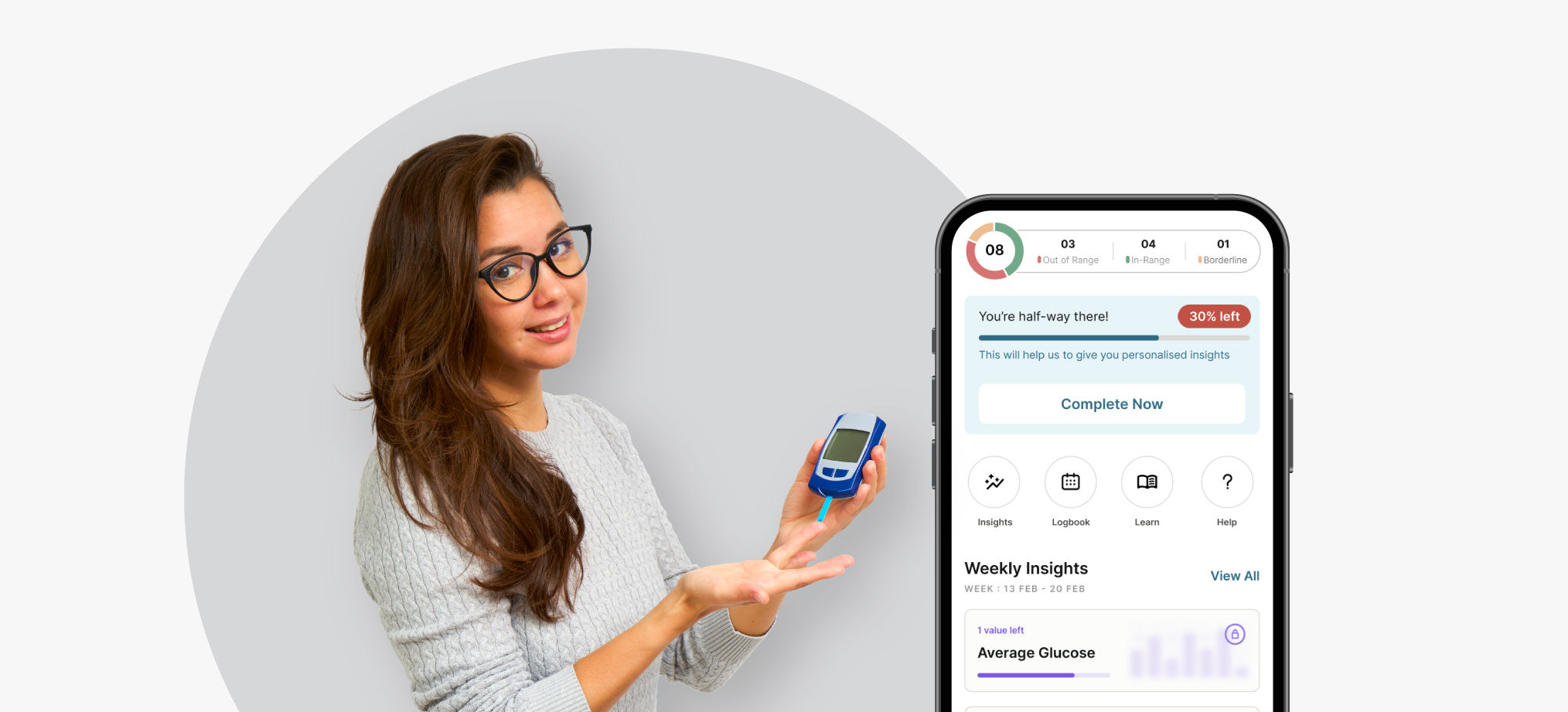Diabetes Management
How Does Vitamin D Benefit People with Diabetes?
5 min read
By Apollo 24/7, Published on - 09 October 2020, Updated on - 13 September 2023
Share this article
7
11 likes

What is insulin sensitivity?
What is Vitamin D?
- Vitamin D3 (cholecalciferol). Primarily found in some animal foods
- Vitamin D2 (ergocalciferol). Mostly present in some plants, mushrooms, and yeasts
How does Vitamin D impact diabetes management?
-
Positively impacts the secretion of insulin
-
Improves insulin sensitivity
What are the other benefits of Vitamin D?
-
Promotes weight loss
-
Regulates appetite
-
Reduces belly fat
How to get Vitamin D?
What is the recommended dietary intake of vitamin D?
- 400 IU (10 mcg): infants, 0–12 months
- 600 IU (15 mcg): children and adults, 1–70 years old
- 800 IU (20 mcg): older adults and pregnant or breastfeeding women
Is Vitamin D supplementation safe?
Conclusion
Diabetes Management
Leave Comment
Recommended for you

Diabetes Management
Understanding the Impact of Standing on Insulin Sensitivity
A new study has found that mere standing can improve insulin sensitivity and reduce the risk of type 2 diabetes.

Diabetes Management
Manage Your Diabetes Like A Pro With Apollo 24|7's 12-Week EMPOWER Programme
Diabetes is one of the most common and widespread lifestyle diseases, affecting millions of people worldwide. Keeping the condition under control is a very challenging task. The Diabetes Management Programme by Apollo 24|7 can help you learn how to manage your condition on your own. Read on to learn how.

Diabetes Management
10 Tips To Choose The Right Diabetes Test Provider
The frequency of diabetes testing depends on factors such as overall health, age, and type of diabetes. Type 1 diabetics should get tested annually, while type 2 diabetics can be tested annually or as advised by their doctors. The HbA1c tests can be conducted every 2-3 months to monitor long-term blood sugar levels. Home blood sugar monitoring may also be recommended based on individual circumstances. Regular testing can help monitor and manage diabetes effectively.
Subscribe
Sign up for our free Health Library Daily Newsletter
Get doctor-approved health tips, news, and more.
Visual Stories

8 Fruits That are Incredibly Healthy for Diabetes
Tap to continue exploring
Recommended for you

Diabetes Management
Understanding the Impact of Standing on Insulin Sensitivity
A new study has found that mere standing can improve insulin sensitivity and reduce the risk of type 2 diabetes.

Diabetes Management
Manage Your Diabetes Like A Pro With Apollo 24|7's 12-Week EMPOWER Programme
Diabetes is one of the most common and widespread lifestyle diseases, affecting millions of people worldwide. Keeping the condition under control is a very challenging task. The Diabetes Management Programme by Apollo 24|7 can help you learn how to manage your condition on your own. Read on to learn how.

Diabetes Management
10 Tips To Choose The Right Diabetes Test Provider
The frequency of diabetes testing depends on factors such as overall health, age, and type of diabetes. Type 1 diabetics should get tested annually, while type 2 diabetics can be tested annually or as advised by their doctors. The HbA1c tests can be conducted every 2-3 months to monitor long-term blood sugar levels. Home blood sugar monitoring may also be recommended based on individual circumstances. Regular testing can help monitor and manage diabetes effectively.